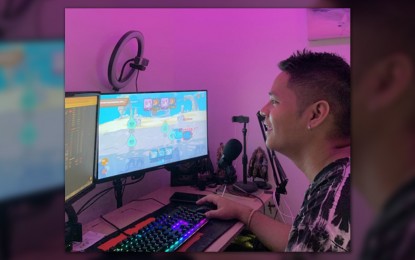
SOURCE OF INCOME. Online gaming has become a venue for people to earn. Regulators are now looking at the operations of play-to-earn entities for possible status as operators of payment systems amid exchanges of Philippine peso-convertible assets like cryptocurrencies. (Photo courtesy of Yield Guild Games)
MANILA – Regulators are studying the operations of play-to-earn entities as an official of a gaming guild claimed they provide their gamers a source of income and aid in the government’s financial inclusion bid.
Yield Guild Games (YGG) country manager Luis Buenaventura said the play-to-earn concept allows players to earn.
The peso-equivalent of the cryptocurrency that gamers earn can be encashed through electronic money (e-money) services.
“Studying our community further, we see how our process has helped make more Filipinos be part of the financial ecosystem and use this to improve their lifestyle,” he said in a statement.
YGG currently has over 5,000 gamers who use non-fungible tokens (NFTs) to play in the various games.
The BSP is currently looking into the operations of play-to-earn entities for a possible status as an operator of payment system (OPS), which is regulated by the central bank.
In a reply to questions from Philippine News Agency, Buenaventura said they are currently not regulated by the BSP because “the Philippine government can only regulate assets that are in currencies they can monitor, such as the Philippine peso.”
Meanwhile, because of the large number of online games, a lot of parents have complained about their kids’ addiction to this.
Buenaventura said there is no age limit in their community but “those who are under 18 will need parental consent before they can join.”
There is, however, a gap on this because players can easily lie about their age while using the gaming platform.
In terms of the impact of online games on the youth’s studies and their relationship with their families, Buenaventura said “unlike all other online games, playing Axie Infinity for long hours every day does not generate more rewards for the players.”
“In fact, the optimal amount of time spent playing Axie is only about two hours, leaving plenty of room for more important things like studying and social interactions,” he said.
Buenaventura said the median age for Filipino players is 22, which means they are more than likely done with school and are “actually attempting to enter the workforce for the first time.”
“Axie Infinity should thus be viewed more as an augmentative measure, which is especially critical during a time when employment and income are both sparse and difficult to secure consistently,” he added. (PNA)
